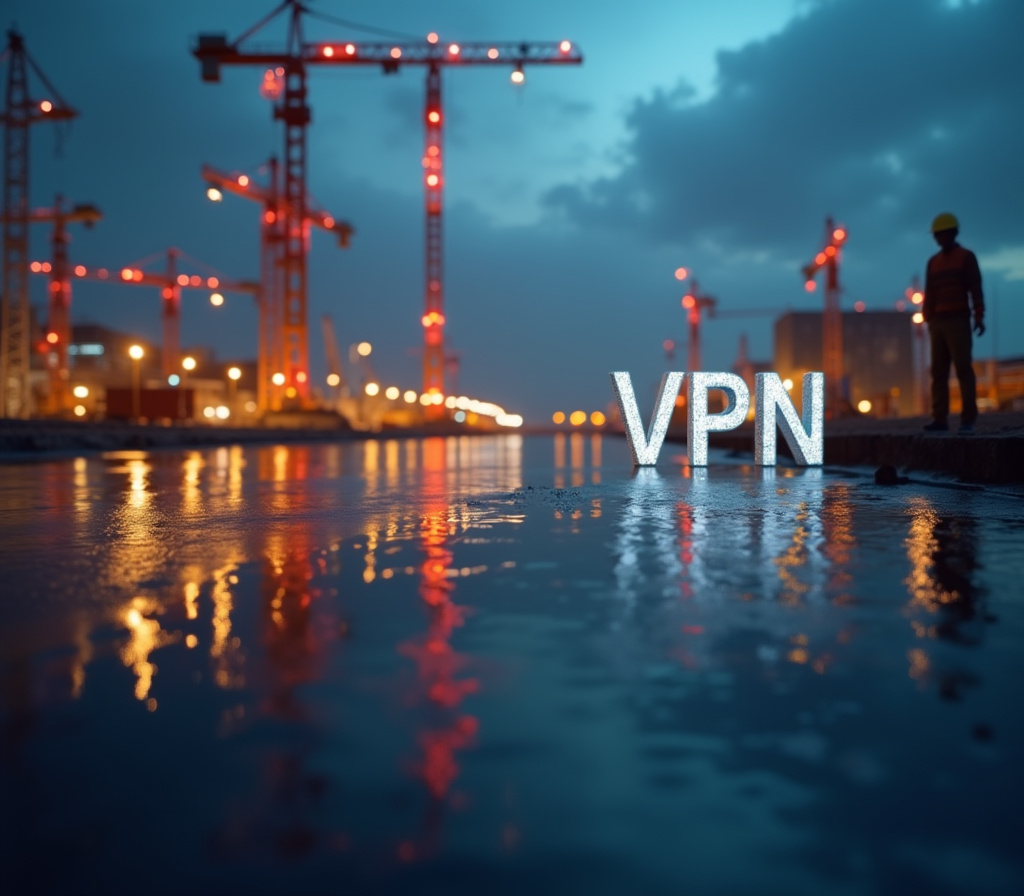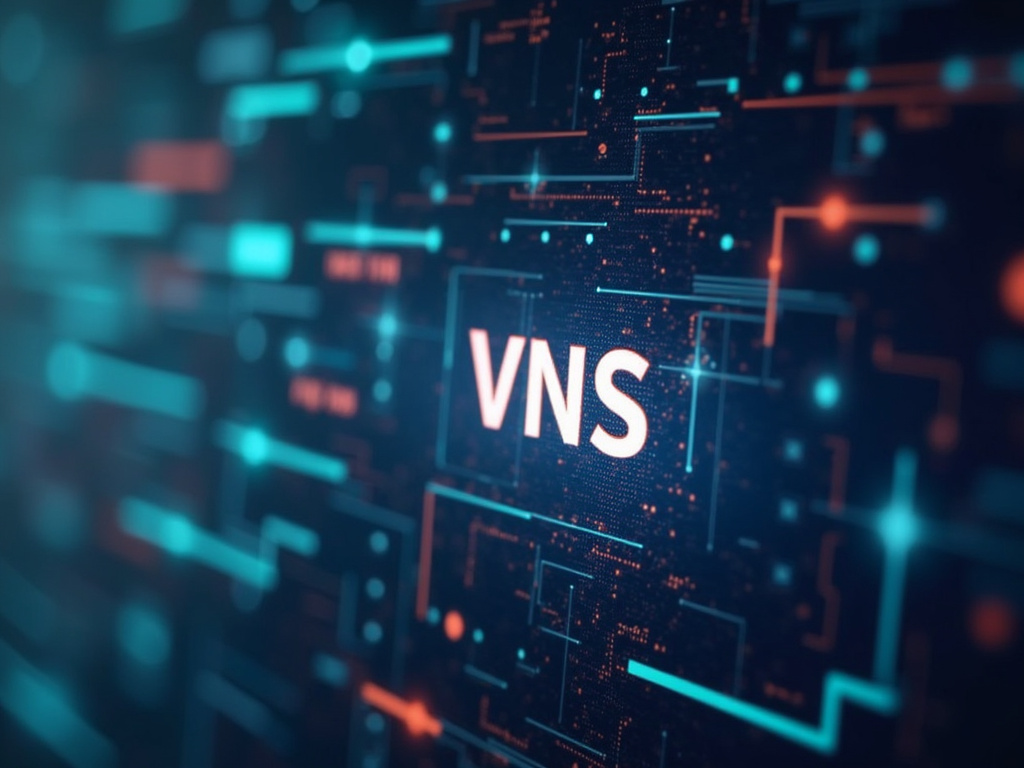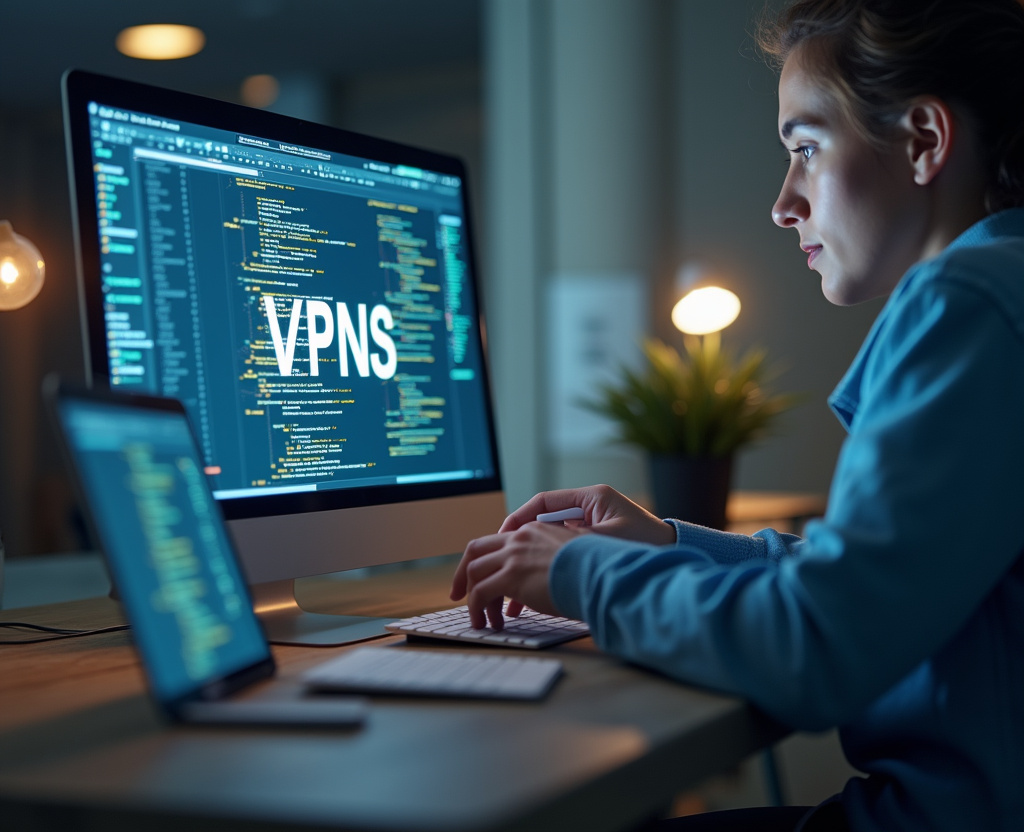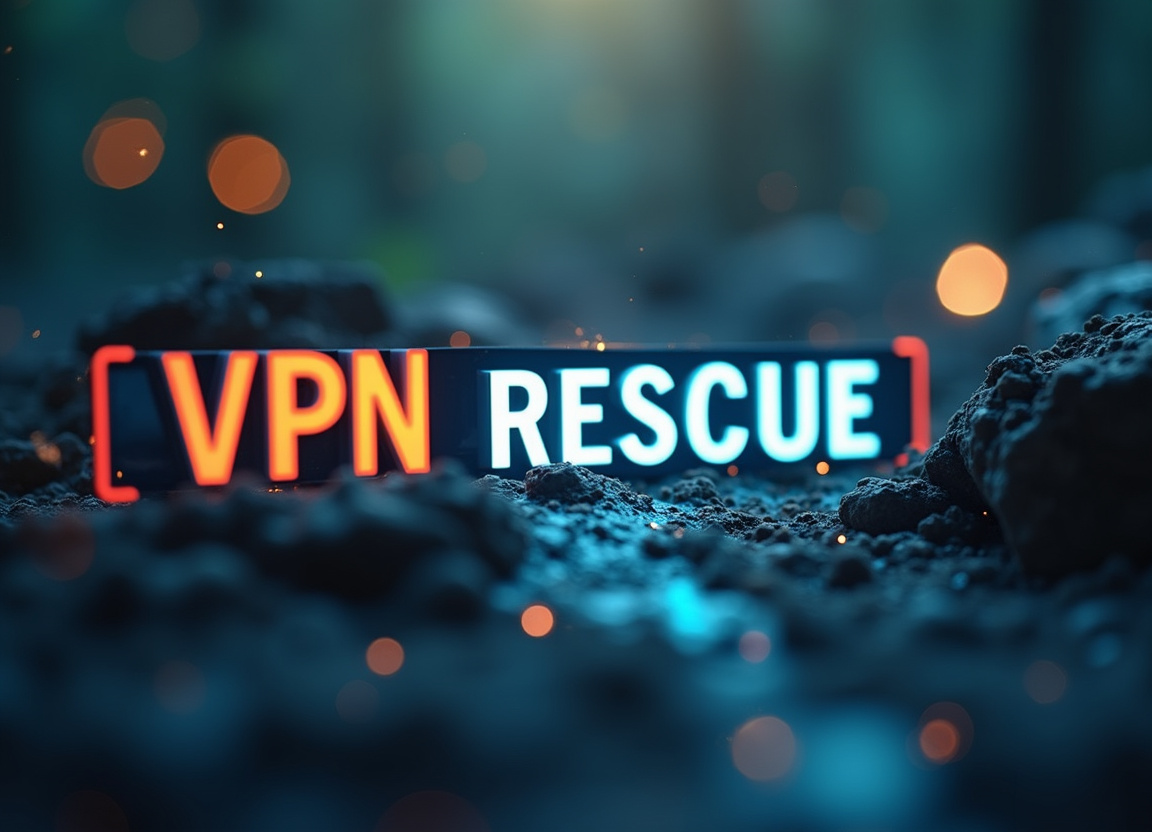VPNs for Construction Sites: Ensuring Secure Communication

Table of Contents
construction site VPN
In the dynamic landscape of modern construction, where digital technologies have revolutionized project management and team collaboration, the imperative of secure communication cannot be overstated. Construction sites, no longer confined to blueprints and physical interactions, now depend on a complex web of software, cloud-based platforms, and mobile devices for efficient operations. This digital transformation, while offering unprecedented gains in productivity and coordination, has simultaneously opened doors to a new realm of security vulnerabilities.
Construction sites, often characterized by their temporary nature, geographical dispersion, and reliance on diverse networks, are exposed to significant cyber threats. These risks range from unauthorized access to sensitive project data and potential interception of critical communications to the ever-present danger of malware infections disrupting operations. In this context, a , short for Virtual Private Network, emerges as a critical and indispensable tool for fortifying communication security and safeguarding sensitive information.
A functions as a secure and encrypted tunnel, channeling data transmission and effectively shielding digital assets from unauthorized access and cyber threats. By establishing an encrypted connection, a VPN ensures that all data transmitted between devices and servers remains confidential and protected from eavesdropping. This is particularly crucial in construction environments where sensitive documents, such as architectural designs, engineering specifications, and financial records, are frequently exchanged over potentially unsecured networks.
One of the primary benefits of a is its ability to enhance by encrypting all data transmitted between devices and servers. Encryption transforms the information into an unreadable format, making it virtually impossible for unauthorized parties to intercept and decipher sensitive data. This includes emails, instant messages, file transfers, and even voice communications.
By encrypting all communication channels, a VPN creates a secure environment for team collaboration and information sharing. Ensuring is paramount, particularly in environments where sensitive discussions and confidential decisions are made. In addition to encryption, a VPN also masks the user's IP address, providing an additional layer of privacy and anonymity.
This helps prevent cybercriminals from tracking user activity or identifying vulnerable devices on the network. By hiding the IP address, a VPN makes it more difficult for attackers to launch targeted attacks or gain unauthorized access to the network. The importance of robust cannot be overemphasized.
Construction projects generate vast amounts of valuable data, including architectural plans, engineering specifications, financial records, client communications, and regulatory documents. This information is often confidential and commercially sensitive, making it a prime target for cybercriminals seeking to steal competitive information, extort ransom payments, or sabotage projects. A VPN serves as a critical defense mechanism for protecting this valuable data from unauthorized access, theft, and corruption.
Choosing the right requires careful consideration of several factors, including the level of encryption, the number of servers available, the speed of the connection, and the ease of use. Construction companies should also consider the scalability of the VPN solution to ensure that it can accommodate the growing needs of the business as the company expands. Finally, they should ensure the VPN solution is compatible across many devices.
By implementing a VPN, construction companies can establish a secure and private network connection, regardless of the underlying network infrastructure. This is particularly important on construction sites where network connectivity may be unreliable or shared with other tenants. A VPN provides a consistent and secure connection, ensuring that data is protected from unauthorized access and interception.
Enhancing Project Data Protection with VPNs
stands as a cornerstone of successful construction operations. Construction projects inherently involve the generation, storage, and exchange of vast quantities of sensitive information. From detailed architectural designs and intricate engineering specifications to confidential financial records, client communications, and legally binding regulatory documents, construction projects are veritable treasure troves of valuable data.
This intellectual property is not only critical for the successful execution of the project but also represents a significant asset for the construction company itself. This makes construction related project data an attractive target for cybercriminals, competitors, or disgruntled individuals seeking to gain an unfair advantage, extort ransom payments, or simply disrupt operations. In this environment, implementing a robust and comprehensive data protection strategy is not merely a best practice, it is an absolute necessity.
A VPN plays a crucial role in this regard, offering a shield against unauthorized access, theft, and the ever-present threat of data corruption. At its core, a VPN enhances by encrypting all data transmitted between the construction site and the company's central servers. This encryption process converts the information into an unreadable format, rendering it virtually impenetrable to unauthorized parties attempting to intercept or decipher it.
Whether the data is being transmitted over a public Wi-Fi network, a shared internet connection, or even a dedicated private network, the VPN ensures that it remains confidential and secure. Without encryption, data transmitted over unsecured networks is akin to broadcasting sensitive information on an open channel. Cybercriminals can readily employ readily available tools to capture network traffic and extract sensitive information, including usernames, passwords, financial data, and confidential project details.
A VPN effectively mitigates this risk by creating a secure and impenetrable tunnel for data transmission, effectively preventing eavesdropping and interception. Achieving a strong posture requires a multi-layered approach that encompasses not only encryption but also robust access control policies, regular system audits for vulnerabilities, and comprehensive employee education programs on cybersecurity best practices. Access control policies define precisely who can access what data and under what conditions, limiting access to sensitive information based on roles, responsibilities, and the principle of least privilege.
This reduces the potential for insider threats and minimizes the impact of external breaches by restricting the scope of access granted to compromised accounts. Conducting regular system audits is essential for identifying and addressing potential vulnerabilities in the construction company's IT infrastructure. This includes scanning for outdated software, misconfigured systems, and weak passwords.
Addressing these vulnerabilities proactively minimizes the risk of exploitation by cybercriminals. Employee education is a critical component of any successful strategy. Employees must be trained to recognize and avoid phishing scams, malware infections, and other common cyber threats.
They should also be educated on the importance of strong passwords, secure browsing habits, and the proper handling of sensitive information. By fostering a culture of cybersecurity awareness, construction companies can empower their employees to become a first line of defense against cyberattacks making them more effective in project . Selecting a suitable takes cloud storage security into account.
The VPN has to be integrated seamlessly with cloud storage solutions, and it has to have the ability to secure traffic between the devices and cloud servers. In addition, the VPN should offer features such as data encryption and access control. Ultimately, the VPN establishes a secure environment for collaboration.
A VPN can also play a crucial role in helping construction companies comply with industry regulations and data privacy laws. Many regions have strict regulations regarding the protection of personal data and intellectual property. By implementing a VPN and adhering to best practices, construction companies can demonstrate their commitment to data security and compliance with these regulations, avoiding costly fines and legal liabilities.
Ensuring Team Interaction Safety and Collaboration
is not merely a desirable attribute but a fundamental requirement for effective collaboration and the ultimate success of any construction project. Construction projects, by their very nature, involve a diverse ecosystem of stakeholders, ranging from architects and engineers to contractors, subcontractors, and the all-important clients. The smooth and efficient coordination of tasks, the rapid and effective resolution of issues, and the ability to make well-informed decisions all hinge on seamless communication and robust collaboration among these various parties.
However, these vital communication channels can also be susceptible to security vulnerabilities, potentially undermining the entire collaborative process. Unsecured email exchanges, unencrypted instant messaging platforms, and inadequately protected video conferencing systems can be intercepted and monitored by unauthorized parties, exposing sensitive information and disrupting project workflow. This is where a steps in as a crucial enabler of , providing the necessary security to foster trust, facilitate open communication, and promote effective collaboration.
A VPN achieves this by encrypting all communication between team members, effectively preventing eavesdropping and safeguarding sensitive information from unauthorized disclosure. This encryption ensures that even if communications are intercepted, they remain unintelligible to anyone without the decryption key, providing a secure and confidential environment for project discussions and decision-making. In today's dispersed work environments, construction teams are often spread across multiple locations, utilizing a variety of different networks and devices.
This widespread distribution further exacerbates the challenges of ensuring . However, a VPN provides a consistent and reliable security solution, regardless of the location or network being used. Whether team members are working on-site, remotely from home, or traveling between locations, the VPN ensures that their communications remain secure and protected.
Beyond encryption, a VPN can also provide additional features that enhance team collaboration and productivity. Some VPN solutions offer secure file sharing capabilities, allowing team members to easily and securely exchange documents, drawings, and other project-related materials. Others may integrate with project management software, providing a centralized platform for communication and task management.
By streamlining communication and collaboration, a VPN can help construction teams work more efficiently and effectively, reducing delays and improving project outcomes. The selection of a has to provide support for communication. This includes chat and voice communication as well as document exchange.
The VPN solution has to seamlessly integrate with the construction team's existing software and communication tools. Securing mobile devices is also indispensable, since construction teams rely heavily on mobile devices for communication and project management. A provides a secure channel for communications, protecting project details and enabling workflows to work smoother.
Regular security audits and vulnerability assessments can also help to identify and address potential weaknesses in the VPN infrastructure, ensuring that it remains secure and effective. Strong password policies are fundamental for preventing unauthorized access to the VPN. Require users to create strong, unique passwords and enforce regular password changes.
Multi-factor authentication (MFA) adds an extra layer of security by requiring users to provide two or more forms of authentication, such as a password and a code from their mobile device. Educating the construction management teams on the importance of and establishing secure communication practices is indispensable. The main message should have directions on how to recognize and report security incidents, and promote a culture of security.
The has to have features to support these topics.
Mitigating Risks and Ensuring Long-Term Security
Implementing a is not a one-time fix; it's an ongoing process that requires continuous monitoring, maintenance, and adaptation to the evolving threat landscape. Cyber threats are constantly becoming more sophisticated, and construction companies must remain vigilant to protect their data and infrastructure. A proactive security approach, combined with the right VPN solution, is essential for mitigating risks and ensuring long-term security.
One of the key aspects of maintaining a secure VPN environment is regular monitoring and logging. By monitoring VPN usage and activity, construction companies can identify suspicious behavior, detect potential security breaches, and track down the source of attacks. Logging VPN activity can provide valuable forensic evidence in the event of a security incident.
Analyzing the logs regularly helps to spot unusual traffic, failed login attempts, or other anomalies that could indicate a security compromise. The monitoring solution should be configured to provide alerts and notifications when suspicious activity is detected, allowing security personnel to respond quickly and effectively. Keeping the VPN software and hardware up-to-date is also crucial for mitigating risks.
Regularly updating the VPN software ensures that the latest security patches and bug fixes are installed, protecting against known vulnerabilities. Hardware components, such as VPN servers and routers, should also be updated to maintain optimal performance and security. Construction sites can have a dynamic environment so it's important for the selected to be scalable and adaptable.
This will make it possible to protect all devices, and it will enforce policies consistently, regardless of the location. The must provide support for mobile devices as well, since project managers, engineers, and field workers rely heavily on smartphones and tablets for project tasks and communication, which also requires mobile device policies. The chosen solution also has to offer data loss prevention mechanisms that can be set up in case of lost or stolen devices.
Consider physical controls and access restrictions to the hardware, as well as employee training programs on identifying and responding to security incidents. The regular back up of configurations and data is an action that can make the construction managers sleep better. This is especially important in the event of a hardware failure, software corruption, or a security breach.
Regular backups allow construction companies to quickly restore their VPN environment to a known good state, minimizing downtime and data loss. Backups should be stored in a secure location, preferably offsite, to protect them from physical damage or theft. A incident response plan also has to be created in case of security incidents and data breaches.
The plan has to define the steps to contain the compromised system, mitigate the damage, notify the relevant parties, and recover the system as soon as possible. Legal requirements depend strongly in each region, so is influenced by this topic. A good method to increase security is penetration testing, which can identify vulnerabilities in the VPN infrastructure before they can be exploited by attackers.
Penetration testing involves simulating real-world attacks to assess the effectiveness of the security controls. The results of the tests can be used to strengthen the VPN environment and improve its overall security posture. In addition to the penetration tests perform regular vulnerability assessments looking for misconfigurations.
A proper should always have these tests configured to work properly.
The Future of VPNs in Construction: Embracing Innovation
As the construction industry continues to embrace digital transformation, the role of VPNs will only become more critical in ensuring secure communication and . Emerging technologies, such as 5G, edge computing, and the Internet of Things (IoT), are poised to revolutionize construction site operations, but they also introduce new security challenges that require innovative solutions. The future of will likely involve increased automation, integration with other security tools, and enhanced focus on user experience.
One of the key trends in the future of VPNs is increased automation. As construction projects become more complex and the volume of data increases, manual configuration and management of VPNs will become increasingly difficult and time-consuming. Automation can help to streamline VPN deployment, configuration, and management, reducing the burden on IT staff and improving overall efficiency.
Automation can also enable dynamic scaling of VPN resources, allowing construction companies to quickly adapt to changing project needs. In addition to automation, integration with other security tools will be essential for providing comprehensive protection. VPNs should be integrated with firewalls, intrusion detection systems, and other security tools to create a layered security architecture that defends against a wide range of threats.
Integration can also enable sharing of threat intelligence, allowing the VPN to proactively block malicious traffic and prevent security breaches. The increased usage of IoT solutions in construction sites will increase the use of to secure the communication. Sensors, drones, and other connected devices generate vast amounts of data, posing serious risks.
A construction site has to adopt new security measures to protect this IoT ecosystem. These measures include network segmentation, device authentication, and data encryption. Edge computing also has influence in the area of VPNs.
The edge computing brings computation and data storage closer to the construction site minimizing the latency and increasing reliability, but this comes at the expense of the . By placing edge servers closer to the construction, the construction sites can process and analyze data in real time, without having to transmit it to a central cloud. In order to increase the , a VPN configured to work properly with edge computing is indispensable.
Another important trend in the future of VPNs is an enhanced focus on user experience. VPNs should be easy to use and manage, even for non-technical users. This requires intuitive interfaces, simplified configuration processes, and comprehensive documentation.
VPN solutions should also be compatible with a wide range of devices and operating systems, ensuring that all team members can securely connect to the network, regardless of their device or location. A key point for choosing the is to perform consistent user experience tests. Make sure that workers in the field have a simple to use interface, and the security team has a good set of administration interfaces to configure.
One common technology that increases security and privacy is blockchain, a shared, immutable ledger that can be used to record and verify transactions. Blockchain can be used to secure VPN connections by distributing the encryption keys across a network of nodes, making it more difficult for attackers to intercept or compromise the keys. In conclusion, VPNs are an essential tool for ensuring at construction sites.
By encrypting data, masking IP addresses, and providing secure remote access, VPNs help to protect project data, ensure team interaction safety, and mitigate the risks of cyberattacks. As the construction industry continues to embrace digital transformation, the role of VPNs will only become more critical in protecting sensitive information and ensuring the success of construction projects. Embracing innovation and staying ahead of the curve will be essential for construction companies to remain competitive and secure in the years to come using a .
Stay Updated
Get the latest VPN news, tips, and exclusive deals to your inbox.




